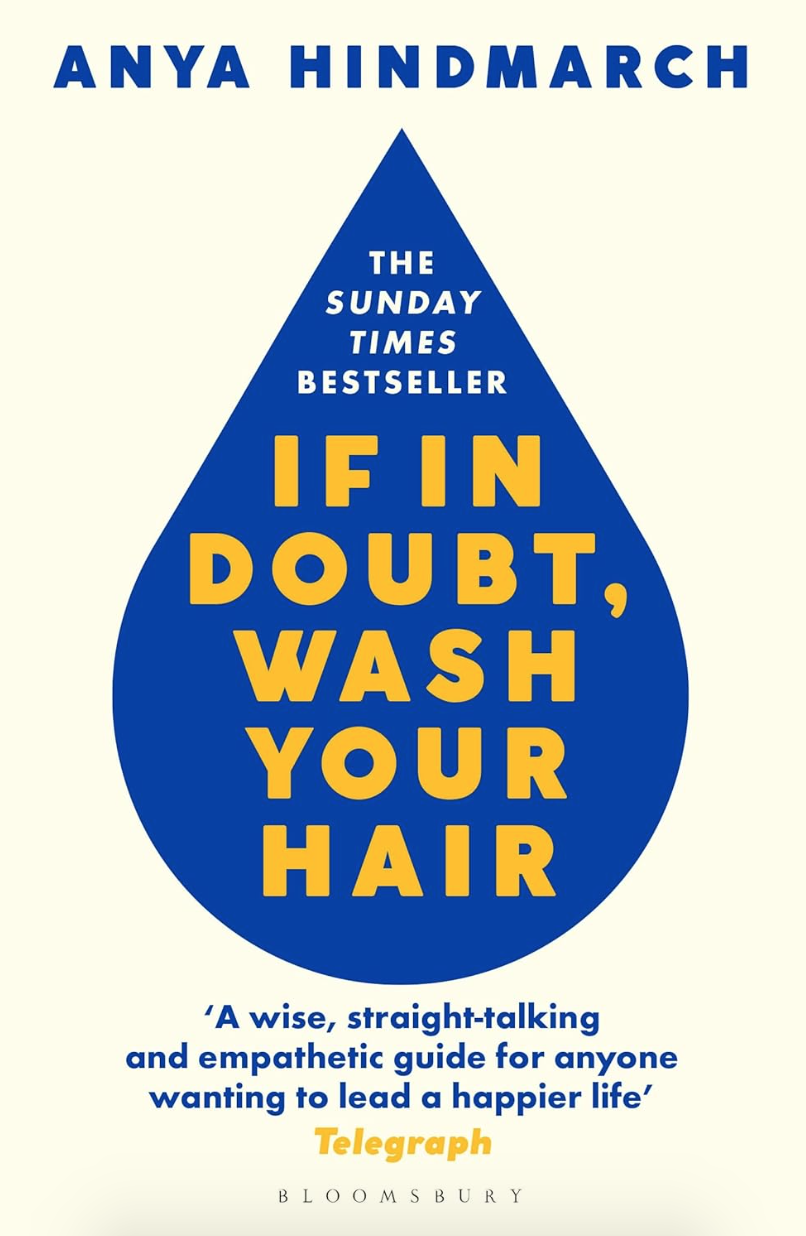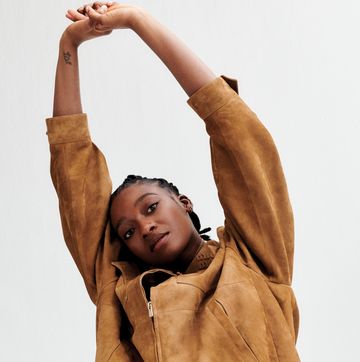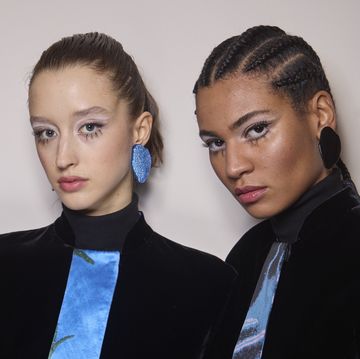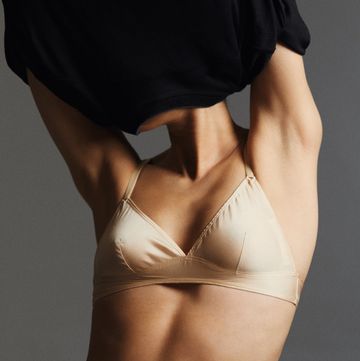I have spent a lot of my life wondering and writing about how a girl might feel comfortable in her own skin; how a woman might like herself without the security blanket of other people’s approval.
When I was young, I had a steely self-belief. I don’t know where it came from, but it was not quiet, and I suppose at times it made me unlikeable. Always my hand up in class, getting the highest grades from the notoriously hard-to-please teachers. Roles in school plays, my name on prizes, talk-talk-talk: I can remember the eye-rolls from classmates. But, in the main, I was approved of, and that was what mattered. It made me feel safe.
The problem was, I was shining so much that I did not have an authentic understanding as to why, underneath all those achievements, I might be truly valuable. I simply couldn’t remember any other way to be: I needed to keep alive the engine of external approval from those I perceived to be my superiors.
When I arrived at university, I still possessed what I thought was security, created by the approval of others. I also possessed a pair of knee-high red leather boots – made by Anello & Davide, discovered in a charity shop – that I loved to wear. Some other students took objection to these boots, and to me, and they relished calling me a prostitute to my face whenever I walked past.
I was too shocked to say anything back. I still remember it with a painful clarity: how parochial, how threatened they were – but how easy it was for them to put me in a box and pull me down with words. I would like to say I didn’t care, but I did. Those students were not my ‘superiors’, but I still wanted them to look at me and approve, and they did not.
And so I realised, like every girl realises, whether she chooses to heed this knowledge or not, that by mimicking the movies, advertising and novels – being pleasing, being ‘chill’, charming and lovely, witty, light-hearted – this behaviour would make me more likeable. I started changing myself, to feel a different kind of safety. People felt less threatened by me, and so they welcomed me.
Being likeable works. It works for a lot of women, into our twenties and thirties, onwards to our forties and beyond. It works for nearly all of us, in fact: because for those of us who fail to stick to the script, who allow our sharpness through, who celebrate our beauty or sexuality without the need for approval, or who appear too confident about expressing or defending ourselves, there is a high price to pay.
The mind itches to punish, the mouth opens wide. We call that girl vain, big-headed, deluded. We call her ugly or a whore. And this is before we even get into the specifics of race and class, vertiginously sliding scales of the ease with which society can disregard a young woman’s agency and freedom. As a result, girls are still growing up realising that the simplest route would be to cultivate a degree of quietness, a demure sexual appeal, a likeability – and hope for the best.
As a girl, it seemed to me that being content with one’s own rules of life without other people’s seals of approval was a gift you might be lucky to be born with, and for a few sweet years, I possessed that gift.
Now, as an adult, I see that even though life is far more complicated than that, Instagram and Twitter have become places where the opposite feelings to this contentment sometimes swell beyond endurance.
Entering their arenas awakens our unsettled discontent with ourselves – a feeling that is only human, really, but which magnifies every time we open the apps. When we’re inside those spaces, we hunger for people to like us. These money-making sites want us to want more – to be higher, deeper, richer, more scared of who we are, while dreaming of a person we will never be. They urge us to share and perform and, above all, to seek approval.
I managed to get off Twitter in 2018. It was a privilege to be able to leave and carry on as a public writer, but I still miss it. There are some very funny and interesting people on Twitter. I’m still on Instagram, which has its pleasures – but it is also a place where disingenuous illusion flourishes, where often-empty words about building communities fail to honour the profundity of lived reality. What ‘like’ means as a word has altered in quality.
My three dearest, oldest female friends are not on social media, and I do not find this accidental. It is in part a reflection of who they are and why I am drawn to them still. I take great pleasure in their quieter ways. They live their lives without watching for the likes, seeking external validation. They live in a place where their mood will be less predicated on a stranger’s virtual round of applause.
Whether your battle with external approval is being fought on the grid or off, no one is ever going to achieve a zen-like state of never caring what a single other person thinks of them. Such a position is hardly desirable because, of course, there are people in your life whose opinion of you truly matters – but that kind of opinion has little to do with the over-valuation of external approval from unworthy observers.
So I have been searching for a change to the way I hunt for approval. I read in an interview with Tavi Gevinson that someone else manages her IG posts: I wouldn’t be surprised if she’s not the only one. Other women I know have given their passwords to their nearest and dearest, only allowed into the Instagram circus tent for a short time. If you’re used to reward since you were a girl, and social media is giving you the dopamine hits, then it’s very hard to walk away.
My red boots are still intact, but time and experience has made me a little less steely. Self-confidence has embedded deeper within, but I do not always know how to nourish it.
I am not so strong that eye-rolls and attempts at sexual insults wouldn’t still hurt, and I am just as plagued by a desire to be liked. I’d love to tell you I’ve had a Damascene moment of conversion, a lightning bolt of revelation about likeability, exposure and approval, and how to solve it. I haven’t – but I suppose, over the past eight years as a novelist, I have written about it instead. This longing to be free from approval exists inside my characters.
The women I create are flawed and difficult, but they have people around them who truly see them, and are loved for it. Most importantly, they come to value themselves, not solely for what they can do or bring, but for who they are, alone.
My latest incarnation, Medusa, is arguably the embodied zenith of such a longing: a girl who is punished for her beauty and called a whore, then punished for her ugliness and called a monster. She finds a way through – to see herself, to understand her shortcomings and her glories. She embraces her darker side, and it makes her feel more integrated as a person.
We are all far more complicated creatures than a wittily curated caption on Instagram. We just haven’t always been allowed to show this. And if it goes on too long, we never find the words.
Becoming comfortable in my own skin will be a lifelong journey – finding a way to exist in the world that feels good for me, and not for the businesses that stand to make money from my intermittent dips in self-esteem. I don’t want to write cheap words, but I think this is one of the most fundamental quests we all face.
And I think that maybe the key to all this is asking: whose approval is it that you’re seeking? What is this approval? Is it true admiration, is it care, is it love? Is it liking, as you used to know it? I think that is at least one thing I have come to understand.
Maybe I will always be drawn back to the surging thrill of curating a version of my life, and being applauded for it. Maybe. But if I know in my own, real heart whose opinions of me truly matter, that will finally be the gateway to my liberation.
Medusa by Jessie Burton is out now.

















